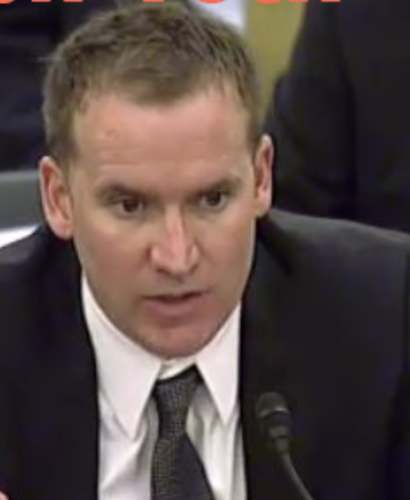Lay Evidence and VA Exam Adequacy

What is the Deep Issue in the Case?
Medical examiners are not required to discuss every piece of favorable evidence or provide reasons or bases. Monzingo v. Shinseki, 26 Vet. App. 97 (2012)
The veteran testified that he had pain related to 2 current joint disabilities (shoulder and foot). The BVA decision does not reference the veteran's lay testimony about pain he experienced in his 2 disabilities related (shoulder and foot conditions). The BVA merely states that a lay person is not competent to opine about medical etiology.
Is a medical opinion inadequate if it fails to address lay evidence relating to the element of nexus?
What did the CAVC Decide?
The CAVC treated the veteran's arguments as attacks against the weight the BVA assigned to lay versus medical evidence. The CAVC found a medical examiner need not address every fact, and that a lay person was not competent to opine about a medical condition's etiology.
* From the context, I am guessing that the lay evidence was about the continuity of symptomatology (pain, specifically) since the in-service injury; if so, then I'm not sure why the BVA's failure to ignore this evidence was proper. But again, I don't have benefit to the record, only the BVA decision and the parties briefs, which are thicker on law than fact.
Takeaway Points for VSOs and Veterans Disability Lawyers:
1) The Perils of the "Traditional" VSO
I struggled to review this case in a fair and balanced way: I think the outcome the Court reached is correct, but I'm not comfortable with the reasoning it used to get there.
That is not an attack on the CAVC or the judge - except in the rarest of situations, I don't see my job in reviewing the CAVC's decision as "second guessing" the Court or any judge.
I may disagree with their decisions, but absent something facially wrong, I'm not in a position to judge the judger, so to speak.
Further, appellate court decisions can only be as good as the briefs the parties submitted: in this case, the parties' briefs did not illuminate the facts in such a way that allows for a deeper analysis of the decision.
That said, allow me to explain why the reasoning in this decision makes me uneasy:
I don't think it is correct to say that an argument that an exam is inadequate is essentially an attack on the weight of the evidence assigned to lay evidence.
I think the Appellant was correct that BVA should have considered whether his lay evidence of pain in his shoulder and/or foot in service was evidence of relationship of a knee or shoulder injury to service: lay evidence of in-service or post-service symptomatology is not evidence of etiology (a medical concept) but evidence of nexus (a legal concept). The BVA decision feels more like a failure to discuss a conflict in evidence which the Federal Circuit recently found improper in Crediford.
That said - and with the added caveat that I only have access to the BVA decision in the Court's public docket and not the actual record - I suspect any error in the CAVC decision (if it is error at all) is harmless. Given the weight of the evidence cited against nexus of the 2 conditions to service, I don't see how the outcome could be different,
In the end, this loss by the Veteran is more about the failure of representation of the veteran before the BVA: this decision has all the indicia of what I typically call "traditional VSO representation".
Now, there are a lot of VSO representatives out there who are trying to provide better representation than VSOs have historically provided, and I specifically want to acknowledge the work these VSO representatives are doing -- almost always on their own "dime".
There are far too many "traditional" VSOs out there, though. When I say "traditional VSO", I mean the VSO that files a couple forms, says a couple magic words in a couple of form letters to the VARO or BVA, but does little else to help the veteran prove an entitlement to benefits before the BVA.
In an earlier post, I listed what I believe are the 10 steps to protecting your clients from getting an adverse C&P exam rubber stamped by the BVA and the CAVC.
I think those same posts are the minimum work that a new generation of VSO should be willing to do to help their clients prove entitlement to benefits.
2) Attorneys must distinguish themselves from the "Traditional VSO".
Under the new VA Appeals Reform program, traditional VSOs are incentivized to continue the "file-a-form-hope-for-the-best" approach.
They will merely tell veterans to fill out a VA Form 21-4138, call it "new and relevant evidence" and continue to file Supplemental claims indefinitely (some VSO funding is contingent on the new claim filing volume for particular representatives and their offices).
This "hamster wheel approach" doesn't benefit veterans. It has not worker over 6 decades, and it won't work now.
It doesn't help the VA become more efficient, and it costs the taxpayer more money down the road.
As attorneys, we are trained in how facts, when applied to the law, produces an outcome.
Interestingly, 2 of the Big 6 VSOs (including one featured in this decision) get their training from law firms with national name recognition in the field of VA benefits. The American Legion just signed a contract with one of these firms in 2017 - so we'll see if this law firm is able to improve the quality of the VSO representation in claims or appeals (or their results) over the coming years, or if this contract was just a marketing strategy for the law firm to get access to more CAVC appeals.
As lawyers, we learn how to argue facts to generate the outcome that is best for our clients.
As accredited VA attorneys, we must apply that formula for our Veteran clients.
The attorney who knows how to prove a VA Benefits claim - and can do so using new and relevant evidence filed within 60 days of filing a supplemental claim - is going to do very well for his or her clients under the new appeals improvement system.
So start using the 10-step approach I discuss in this post to begin building stronger evidence -and stronger facts - to prove your client's entitlement to disability compensation benefits.
Build that process into a routine, and you will be freed up to start developing ways to more consistently argue the right facts to get the best result for your client.
Case Details
Link to the CAVC Single Judge Decision on the CAVC Website.
Link to the BVA Decision on CAVC Website.
CAVC Judge: Judge Joseph L. Toth (link to bio on CAVC website)
OGC Attorney: Anita U. Ajenifuja
Veteran Representation at CAVC: Maxwell D. Kinman
Board of Veterans Appeals Veterans Law Judge: Nathaniel J. Doan
Regional Office: Roanoke, VA
Vets’ Rep at BVA: American Legion
Date of Decision: January 18, 2018
* Photograph of Judge Joseph L. Toth is from Congressional hearing testimony; original copyright holder is unknown, please contact website administrator if you hold the copyright to this photo so we can provide proper credit.

